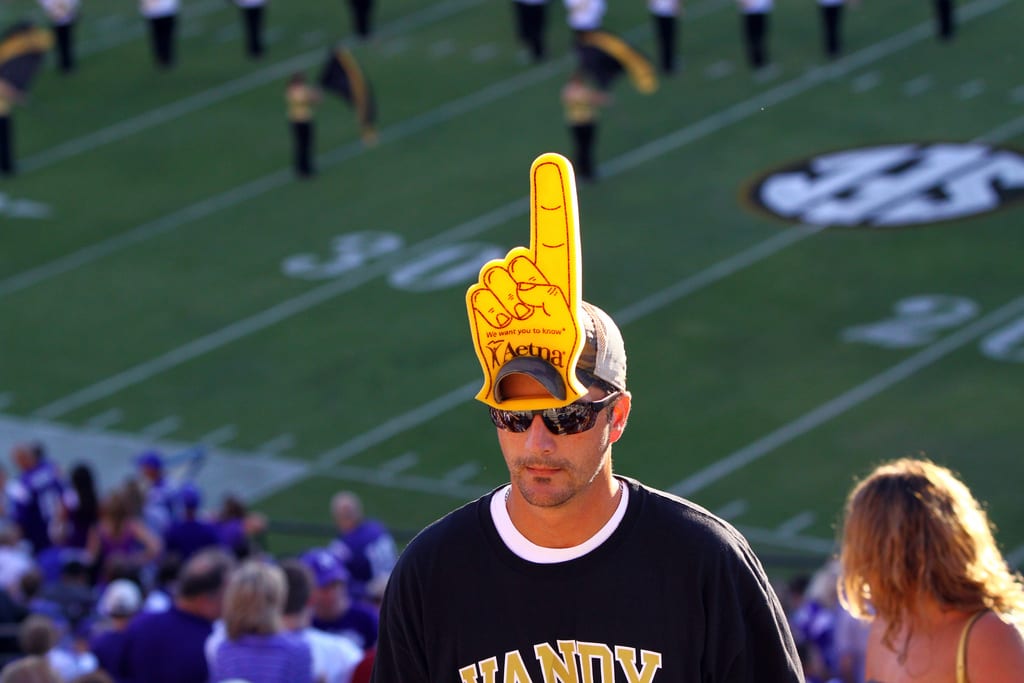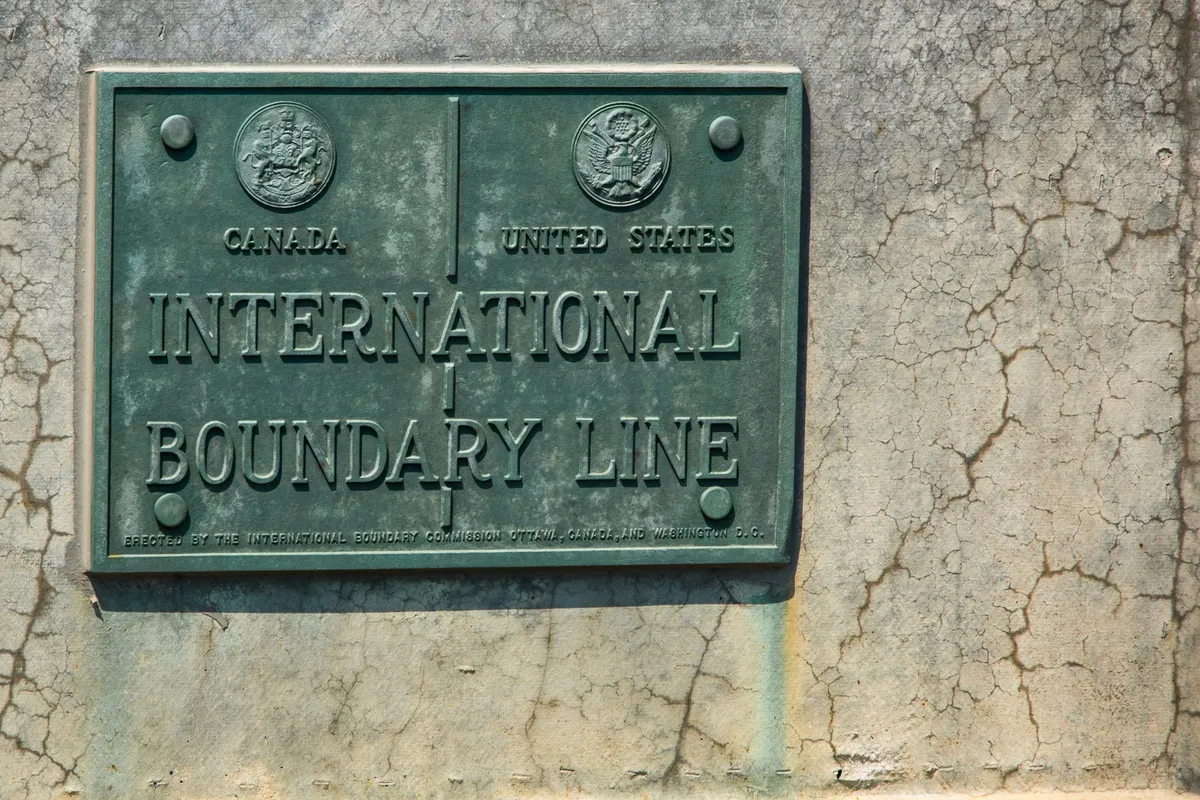College Football's Big Score for Local Tourism

Skift Take
In one of the most highly anticipated college football rivalries this season, the University of Florida Gators will take on the University of Georgia Bulldogs on Saturday afternoon. Along with their teams, thousands of fans will trek to a neutral playing site in Jacksonville, Florida, booking hotels and Airbnbs, eating in restaurants, and spreading cash around wherever they can — before, after, and during the nationally televised game.
The Southeastern Conference (SEC) possesses some of the most rabid fans in all of college football who never miss home or away games. Saturdays are sacrosanct, held high as a ritual whose beneficiaries are the small businesses throughout the Southeast United States playing host to the throngs every weekend.
College football is a boon to local tourism, pouring tens of millions of dollars into college town economies. Consider that in 2017, more than 47 million people attended college football games, according NCAA figures for all divisions.
Sometimes fans find cheap flights to watch their teams, but more often than not it's about the good old trip. Visiting college football towns in the fall is now a regular marketing pitch, with big media brands like the Travel Channel picking up on the trend. And tour operators offer packages specifically catering to the traveling college football fan like Golden Sports Tours of Plano, Texas.
No division exemplifies this growing phenomenon better than the SEC.
“You prepare all year for college football games — home and even away; the difference in revenue (compared to road skirmishes) is amazing,” said Freddie Wehbe, owner of Wehbe Marketing. For 25 years, he's operated Domino’s franchises in the Gainesville, Florida area, home of the University of Florida. “Typically, in the pizza business, a home game’s a 150 percent increase in revenues. It can flip everything upside down.”
The SEC led all conferences in attendance in 2017, with seven teams averaging at least 80,000 fans in attendance, according to the SEC-focused fan site Saturday Down South. For the 20th straight year, the conference overall outpaced all others in attendance for football games, drawing an average of 75,074 fans a contest – almost 10,000 more per game than the second-place division, the Big Ten.
As for the Sunshine State – particularly among smaller cities – visitors for home games substantially impact tourism, reports Florida Tax Watch. During college football season, several cities, including Gainesville, experience a large increase in economic activity as fans fill area hotels, participate in local events, purchase food and beverages and stock up on their team’s merchandise.
Visitors to the UF campus for events like football games, for example, spent more than $253 million in 2014-15, according to the University of Florida website. Overall, the university's economic impact on the state in fiscal year 2014-15 was $12.56 billion in industry output or sales revenues, $7.83 billion in contributions to state gross domestic product, and 135,576 full-time and part-time jobs, according to a report recently released by the university.
One beneficiary, Jerry Roberts, owner of Gator Dockside in Gainesville, said: “College football homes games are the weekends we’re waiting for. We’re always adjusting for those volumes.” Typical revenue increases fall in the 100 or 200 percent range in those couple of days leading to kickoff, Roberts noted. “It requires almost double the amount of staff and amount of groceries and food coming in.”
Business jumps as much as 100 percent to 200 percent for homes games on Saturdays; and depending on the competition, Fridays and sometimes Sunday, Roberts added. Gains also depend on the timing of the game and weather, not to mention winning, he added.
Sports economist Rob Baumann, who has written on this topic, said college towns like Gainesville and Tallahassee ( home to Florida State University) benefit greatly from home football games.
“So yes, big time college football games mean a lot to their host cities and bring in revenue to restaurants, Airbnb hosts, hotels, and any other hospitality industry," said Baumann, a professor at the College of Holy Cross. “This is especially true in the SEC, where most teams play in relatively small cities, (like) Tuscaloosa, Auburn, Athens, Columbia and Oxford."
It Only Takes a Game or Two to Make a Difference
Sometimes it just one or two big games a season that can provide the economic boost. At Vanderbilt University in Nashville, save for games like VU vs. Alabama in 2017, citywide home games don’t provide much economic bounce, said Allison Duke, associate director of public relations for the Nashville Convention & Visitors Corp.
Last year’s skirmish against the Crimson Tide, however, contributed to a strong weekend with 94 percent occupancy (up by 6 percent from the same weekend in 2016), and a hotel rate growth of 17 percent over the same weekend the previous year, Duke noted.
Off the field, Nashville's West End hotels & restaurants see the primary impact of VU home games.
The Courtyard by Marriott Nashville Vanderbilt/West End sees an uptick for football weekends, with the the level of business depending on the visiting school, said Kip Damrow, director of sales & marketing at the hotel. “Vandy isn’t known as a football power, so the number of fans visiting is minimal compared to the number of visitors to the city on the typical fall weekend.” That said, he continued, “we’re lucky that Nashville’s a destination for the visiting fans bases; so that certainly helps.”
Conversely, on game day weekends, Hattie B's Hot Chicken in Nashville, which has three centrally located restaurants in the area, caters to a large volume of football fans at each location, said co founder Nick Bishop, Jr.
“The biggest boom is at our Midtown restaurant, which is close to Vanderbilt—their stadium is six blocks away,” said Bishop. Vandy fans order food to-go for tailgating and parties, so we'll see more orders of wings and platters. In the restaurant, we welcome more opposing fans. Nashville is a destination, and these fans make the most out of their visit.”
Meanwhile, down in Oxford, Mississippi, hotels, shops and restaurants see an impact in their revenues during this season each year due to the influx of people coming into town for University of Mississippi home contests, noted Kinney Ferris, deputy director of tourism group Visit Oxford.
“The weeks Ole Miss is hosting an SEC team, our hotels see more traffic than non-conference games,” stated a spokesperson with a hotel management company in Oxford, Mississippi. On these weeks, pick-up begins on Thursday, with the majority coming in on Friday, with higher rates on football weekends — especially SEC weekends, the Ferris continued.
“As a community member, the football games are important to the town. Shops, restaurants, and hotels get a revenue boost leading into the slower winter months, which is important to the small businesses.”
And even though this Saturday's Florida-Georgia contest is being played in the neutral location of Jacksonville, Florida, that won't stop fans from packing up for the drive to the coastal city, whose small businesses stand to be the big winners this weekend.





